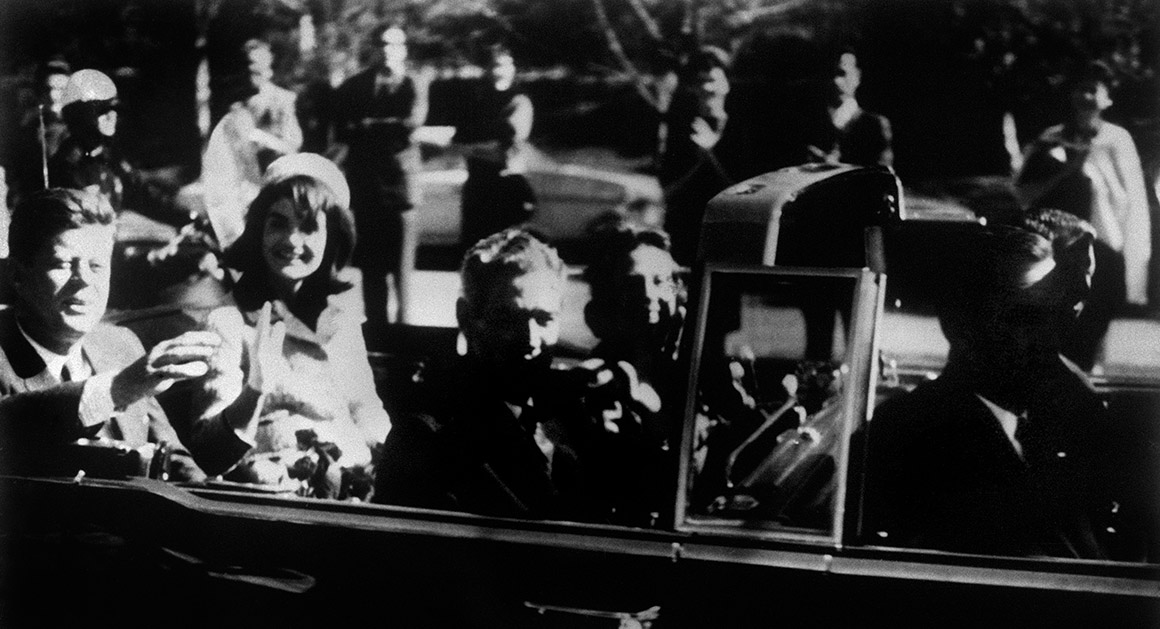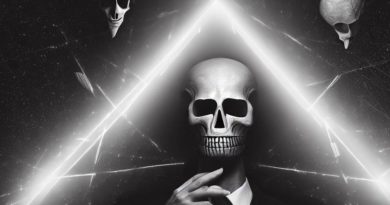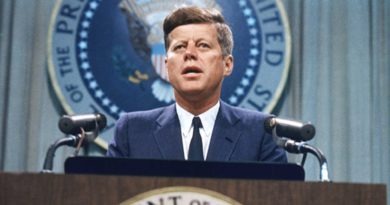What the government is still hiding about the JFK assassination

More than five decades after the assassination of President John F. Kennedy, thousands of government files detailing the activities and testimony of shadowy spies, long-deceased witnesses and others with possible knowledge of the events remain shielded from public view.
The government gave a first-ever peek at what’s still out there Thursday, as the National Archives released a list of the 3,063 documents that have been “fully withheld” since JFK’s murder in Dallas on Nov. 22, 1963.
Advertisement
The documents listed — released in response to a Freedom of Information Act request from POLITICO, other news organizations and researchers — were collected by the Assassination Records Review Board, an independent panel created by the 1992 JFK Records Act.
That same act requires that all the documents on the list be released by October 2017 unless the next president decides to keep them classified.
Based on what has been revealed previously, many of the files are expected to have no direct bearing on Kennedy’s death in Dealey Plaza but could reveal intelligence operations involving Cuba, secret relationships between U.S. spy agencies and unsavory characters during the height of the Cold War, as well as other secrets the U.S. government might have resisted disclosing publicly as part of a full and open investigation at the time.
Cold War scholars have long suspected that many of the still-withheld files will not necessarily shed new light on whether Oswald acted alone. They could, however, help explain why some top officials at the time might have sought to prevent a thorough investigation, out of concern it would require airing the dirty laundry of covert activities.
Yet asked whether there might be any significant revelations about Kennedy’s unsolved murder, Martha Murphy, head of the Archives’ Special Access Branch, told POLITICO last year, “I’ll be honest. I am hesitant to say you’re not going to find out anything about the assassination.”
The Archives says that “certain information has been removed” from the list, including titles and other identifying information, to protect national security, personal privacy and tax information.
Here is a snapshot of what is still being hidden from the public about key figures, probes and other events that the Archives has deemed relevant to the JFK investigation.
Lee Harvey Oswald
Secret CIA “personality” studies of the reported lone assassin fingered by the Warren Commission produced immediately after the assassination have yet to be released, along with a telegram about him from the U.S. Embassy in Mexico City to the State Department a week after the assassination. Oswald, a former Marine who had temporarily defected to the Soviet Union in 1959, is suspected of having visited Mexico City in the weeks before the assassination, reportedly to obtain a visa to travel to Cuba.
There also are hundreds of other pages of undated CIA files that contain classified information on Oswald, including a handwritten note from Yuri Nosenko, a KGB officer who defected from the Soviet Union and also is the subject of numerous other secret transcripts and tapes contained in the withheld records, as well as another document on Oswald’s “contacts with Cuban and Soviet embassies.” The trove also includes a pair of 1959 telegrams — one from the State Department to Moscow and the other from Moscow to Secretary of State Christian Herter — regarding Oswald’s brother Robert.
J. Edgar Hoover
There are a series of communications from the longest-serving and highly secretive FBI director, including one titled “Reaction of Soviet and Communist Party officials to JFK assassination” that he sent to President Lyndon B. Johnson’s chief of staff, Marvin Watson, a week after the assassination; another a few weeks later to the deputy secretary of state for security relating to Oswald; and a series of 1964 memos sent to J. Lee Rankin, the general counsel of the Warren Commission, about Jack Ruby, the Dallas night club owner with mafia ties who killed Oswald two days after the assassination in the basement of the Dallas police station, preventing a trial.
Jacqueline Kennedy
At least five communications are contained in the files from the former first lady to President Lyndon B. Johnson in the days immediately following the assassination.
James Jesus Angleton
Still classified is the top-secret testimony from the chief of the CIA’s counterintelligence branch from 1954 to 1975 before the so-called Church Committee, convened by the U.S. Senate in 1975 to investigate abuses by the spy agency. It was the Church Committee that revealed for the first time that the CIA had hired figures in organized crime with deep ties to Havana to help overthrow the communist government of Fidel Castro, including through assassination attempts.
Frank Sturgis
Also contained in the remaining JFK files is the former military officer and undercover operative’s 1975 testimony before the Church Committee. Sturgis was also one of the five Watergate burglars whose break-in at the Democratic Party headquarters in 1972 led to the resignation of President Richard Nixon.
David Atlee Phillips
The trove includes the secret testimony before the House Select Committee on Assassinations in 1978 from the longtime CIA officer who was involved in covert U.S. plans to assassinate Castro and also was a person of interest in the JFK case for scholars and researchers.
Regis Kennedy
Kennedy (no relation to the president) is among several witnesses connected to the events in Dallas in 1963 who died before they could be fully questioned. Kennedy reportedly suffered a heart attack the day before he was scheduled to testify before a grand jury on confiscated home movies of the assassination. The unreleased files contain an untitled communication from Justice Department files from Regis Kennedy to the special agent in charge of the FBI’s New Orleans field office on May 18, 1967.
Protected sources
Several unidentified CIA documents, according to the newly released inventory of withheld JFK records, have been kept from the public to protect an intelligence source that is still living.
Illegible material
Sure to fuel conspiracy theories, a sizable portion of CIA documents related to the JFK case is deemed “illegible.” The documents include one from the general counsel of the Warren Commission to the CIA’s Richard Helms. Helms, who later became director, managed the agency’s cooperation with the independent panel that was set up by President Johnson and concluded that Oswald was the lone assassin.
Another set of documents the agency shared with the Warren Commission deemed unreadable: several communications from the agency’s station in Mexico City before and after the assassination, including a cable to “Director Info Havana” on Nov. 11, 1959.
Also deemed unreadable is a secret communication from the CIA to the Office of Naval Intelligence before the assassination — in October 1963 — about Oswald.
Not believed relevant
Some of the withheld documents were designated in the 1990s by the Assassination Records Review Board as “not believed relevant” to the assassination but are nevertheless of keen historical interest. They include the CIA “operational” files of E. Howard Hunt, another of the Watergate burglars and a career spy. Also withheld is a CIA file on Jack Wasserman, a lawyer for New Orleans mafia boss Carlos Marcello and a longtime suspect in the assassination who was also involved in CIA plots to overthrow Castro in Cuba.
*** This article has been archived for your research. The original version from POLITICO can be found here ***


